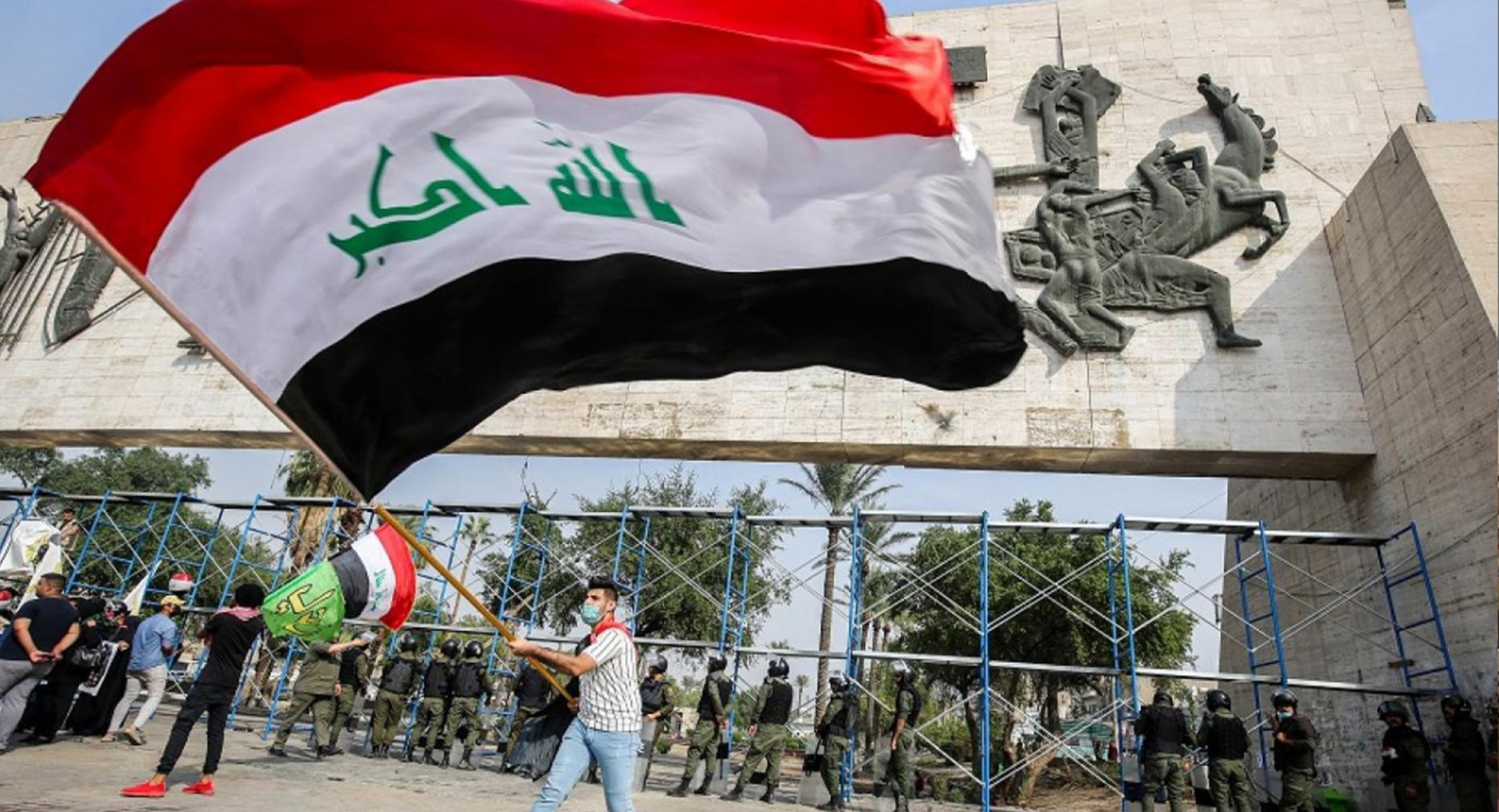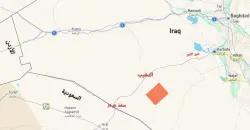The Abyss of Iraqi political Crisis

Shafaq News/ Since 2003, Iraq has been living on the impact of political crises, which have obscured all the consensus between the blocs that make up the political system.
Last Monday evening, the United Nations envoy to Iraq, Jeanine Plasschaert, criticized the political class and its failure to manage the country, during a briefing session on the Security Council, noting that corruption is eating away at all joints of the state.
Plasschaert reiterated her call to Iraqi leaders to the importance of embarking on a path towards achieving political stability, stressing that the time has come for them to engage in dialogue and collectively identify the country’s basic needs and push it away from the brink.
These criticisms coincide with the imminent launch of new demonstrations on October 25, a year after the elections demanded by the demonstrators in October 2019 and the failure to form a new government.
As it has became clear, the only solution is through dialogue, the Sadrist movement to return to the dialogue after the briefing provided by Plasschaert to the UN Security Council on Iraq. Plasschaert diagnosed during her briefing the absence of the Sadrist movement from the dialogue that took place under the auspices of the Prime Minister, which requires a return to dialogue. She does not consider imposing the will of the international community, but it is preparing messages to the political forces that there is no solution but dialogue.
She also pointed out that “the international community sees the need to form a government during this stage, especially in light of the continuation of the war between Russia and Ukraine and does not want an armed clash within the country,” stressing that “in the event of Saddam, guardianship will be imposed on Iraq under Chapter VII, and this matter is not desired by the Iraqi people nor the political forces.”
Since 2003, Iraq has been living on the impact of political crises, which have obscured all the consensus between the blocs that make up the political system.
Last Monday evening, the United Nations envoy to Iraq, Jeanine Plasschaert, criticized the political class and its failure to manage the country, during a briefing session on the Security Council, noting that corruption is eating away at all joints of the state.
Plasschaert reiterated her call to Iraqi leaders to the importance of embarking on a path towards achieving political stability, stressing that the time has come for them to engage in dialogue and collectively identify the country’s basic needs and push it away from the brink.
These criticisms coincide with the imminent launch of new demonstrations on October 25, a year after the elections demanded by the demonstrators in October 2019 and the failure to form a new government.
As it has became clear, the only solution is through dialogue, the Sadrist movement to return to the dialogue after the briefing provided by Plasschaert to the UN Security Council on Iraq. Plasschaert diagnosed during her briefing the absence of the Sadrist movement from the dialogue that took place under the auspices of the Prime Minister, which requires a return to dialogue. She does not consider imposing the will of the international community, but it is preparing messages to the political forces that there is no solution but dialogue.
She also pointed out that “the international community sees the need to form a government during this stage, especially in light of the continuation of the war between Russia and Ukraine and does not want an armed clash within the country,” stressing that “in the event of Saddam, guardianship will be imposed on Iraq under Chapter VII, and this matter is not desired by the Iraqi people nor the political forces.”
Crises and challenges
The current Iraqi political system, since the formation of the political process, has gone through crises and challenges that almost torpedoed it, but it resisted and was able to cross the challenges. All those who participate in this process, even those who claim the opposition, do not want this regime to collapse, even though it is full of problems and crises, such as corruption, quotas and sectarian rhetoric that need to be addressed, but even in light of the persistence and spread of the mentioned problems, it cannot accelerate its fall from the ground up. Rather, it keeps it sick and prolongs its suffering for as long as possible.
In addition, external international parties who want Iraq to remain disintegrated and weak economically and militarily, which does not pose any threat to its neighbors, and a market for those countries’ products. This is in line with internal political forces benefiting from the situation remaining as it is to facilitate the sharing of the country’s many bounties and their going into pockets. A certain elite, and the lack of accountability threatens the gains they are getting.
Hence, is an urgent need to ease the crises and keep Iraq away from the brink, and there is no solution but to return to commitment to the constitution, and to rule the law against every corrupt, sectarian or criminal without discrimination. Despite the many attempts to save the political system, they are weak and futile, because the mechanisms that demand reform are either weak without leadership, and their gains, rhetoric and slogans are easy to steal by the ruling parties, or calls are made by those who are the reason for the Iraqi political system to reach this state, and the cause of the problem cannot be a party to the solution.
Mismatched Team
Nevertheless, the question remains, is the Iraqi political system after 2003 on the edge of the abyss? The political forces are playing today with an incoherent and multinational political team, and in the minutes of the second extra half, despite the negative result in front of the Iraqi people’s team. After five electoral cycles and nearly two decades of ruling, the social, economic and service indicators are still negative, and the political forces have moved from the struggles of the components, sectarianism and nationalism to another complex conflict that includes the addition of the struggle of the component houses aimed at controlling power. The impact of the political discourse has receded to low levels, and this may be proven by the participation rates in each election, as it decreased from 70% to 35% in 2022, and expectations indicate that it will recede more and more if the situation continues as bad as its management and rampant corruption.
The Bottom line is, the Iraqis usually contemplate, albeit with negative aspirations and hopes, that an event that contributes to the removal of the entire political class is approaching, through a military coup, an angry demonstration, or even an international intervention similar to what happened in 2003, which is a dangerous indicator during which we seek entry. This system has reached the stage of old age, and the social contract between the authority and the people has expired.
(Foreign Diplomacy)





